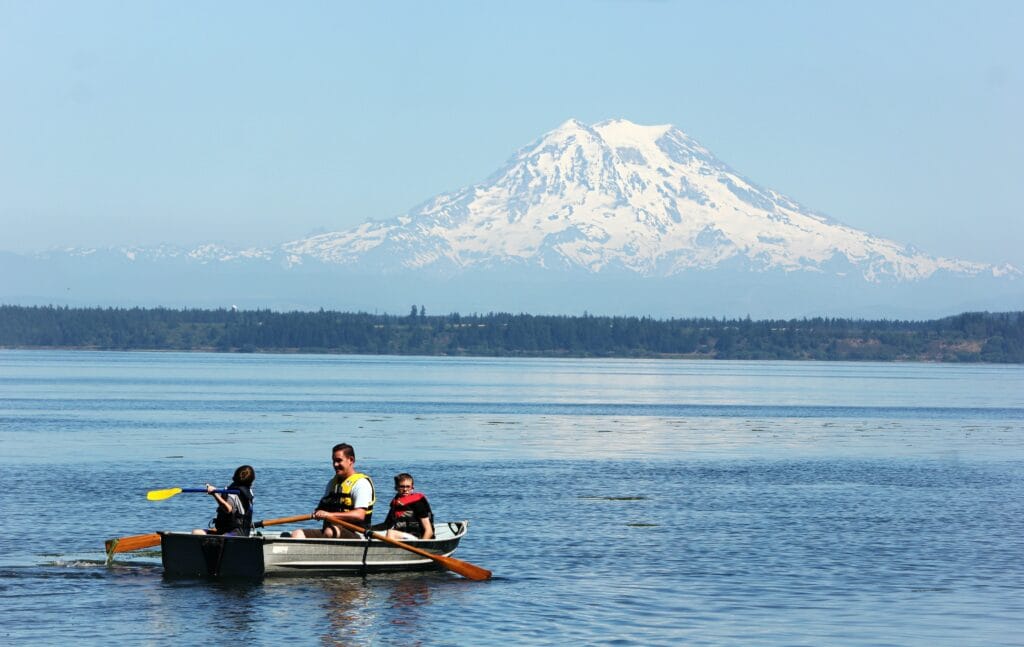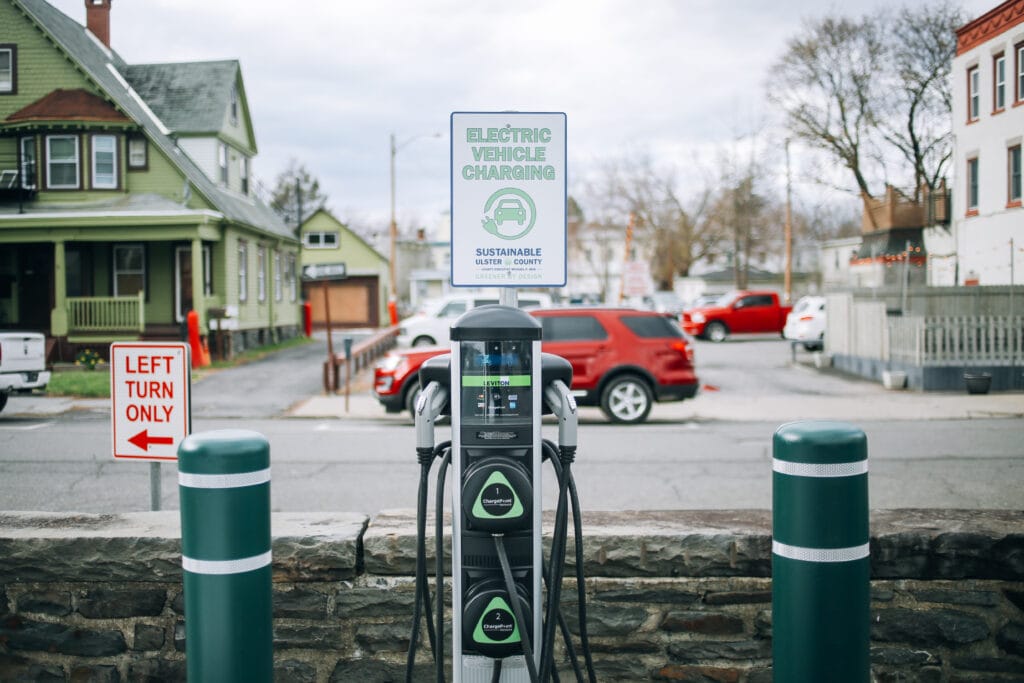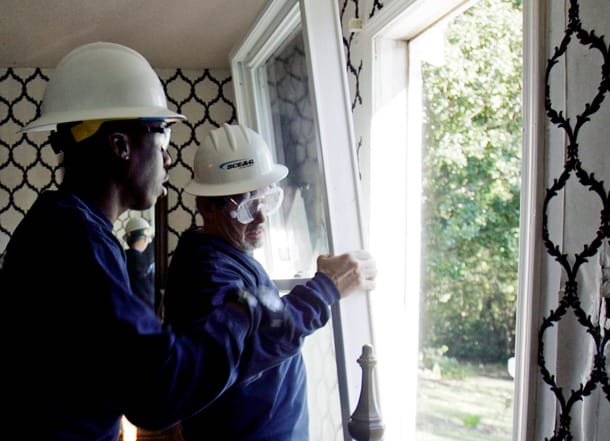Washington’s 2022 Legislative Session Wrap-Up
Every year, the Washington State Legislature gathers in Olympia, WA to craft, debate, and pass legislation that will be sent to the Governor and, if signed into law, will impact their constituents for years to come. The 2022 session recently ended on March 10. In this year’s session, the NW Energy Coalition worked hard to support passage of policies that advance the electrification of transportation, decarbonization of buildings, invest in efficiency and clean energy, and create programs to help ensure energy affordability. Here are some highlights:

NWEC’s Priorities
Expanding the Building Performance Standard (SB 5722), sponsored by Sen. Nguyen and Governor Request legislation. A building performance standard (BPS) requires buildings to meet energy use targets with efficiency improvements over time – an important climate policy since buildings stay in use for decades. In 2019, the Legislature passed the Clean Buildings Act, which set a BPS for commercial buildings of 50,000 square feet or larger, a small number of buildings, and goes into effect in 2026. SB 5722 expands the benchmarking and energy management planning requirements of the Clean Buildings Act to smaller commercial (20,000 – 50,000 square feet) and multifamily buildings (20,000 square feet or larger) to maximize energy efficiency and the resulting climate and health benefits.
Updating Appliance Efficiency Standards (HB 1619), sponsored by Rep. Fitzgibbon. Appliance efficiency standards require certain appliances to meet certain energy use thresholds, and are an important tool to reduce energy use, cut emissions, and encourage innovation. HB 1619 establishes new efficiency standards for air purifiers, commercial ovens, and electric vehicle supply equipment beginning in 2024. The bill also updates efficiency standards for commercial hot food holding cabinets, electric spas, and residential ventilating fans.
Right to Charge (HB 1793), sponsored by Rep. Hackney. The transportation sector is the largest contributor to greenhouse gas emissions in Washington State and is a significant source of harmful air pollution. Electric vehicle adoption is one tool to decrease those emissions and improve air quality. There are currently over 87,000 electric vehicles in the state and electric vehicle use is rapidly expanding. It is critical that everyone have access to convenient and affordable electricity as a transportation fuel regardless of where you live. HB 1793 removes barriers to install or use electric vehicle charging stations for those living in condos or Homeowner Associations – about one-third of Washingtonians.

Lead by Example: Designing State Buildings (HB 1280), sponsored by Rep. Ramel. As buildings shift away from fossil fuels and towards decarbonization, municipal and state governments should be leading by example in the transition. HB 1280 requires medium and large sized (25,000 – 100,000 square feet) state building projects to study the costs and savings of using clean-sourced electricity instead of fossil fuels in a building’s pre-design phase. State-owned or leased facilities that undergo construction or major renovation need to calculate the life cycle costs and savings of all-electric systems vs. fossil-fueled systems.
Budget Wins
Most budget work happens in odd-numbered years, but in even-numbered years, the Legislature does work on supplemental capital and operating budgets. The Legislature also passed Move Ahead Washington, a new transportation package.
In the 2021 capital budget, the state’s Weatherization Plus Health program was funded below historic levels, leaving important home weatherization projects on the table. This year, the Legislature came back and authorized more than $69 million in federal dollars to the program, as well as a $10 million state match. State matching dollars are important to this program as they are able to be used in more flexible ways than federal dollars, such as for home repair.
The COVID pandemic has had reverberating economic effects on the state, and many residents have found themselves newly unable to pay their utility bills. The Legislature authorized $100 million in funding to help address energy and water utility bills.
The supplemental operating budget funds several new programs to decarbonize the transportation sector. The bill includes $25 million for zero emission vehicle incentives, $69 million for electric vehicle charging infrastructure, $8.5 million to build a zero-emission vehicle infrastructure mapping forecasting tool, and approximately $3 million to help the state transition its fleet to electric vehicles.
Move Ahead Washington (SB 5974) invests in transit and fare-free service for every child and youth, accessible infrastructure that lets people walk, roll, and bike with greater safety, Tribal transportation, healthy salmon passages, and vehicle electrification. The bill establishes a goal for all publicly and privately owned passenger vehicles from model year 2030 and later that are sold, purchased, or registered in Washington state to be electric vehicles as well as creates an interagency electric vehicle coordinating council.
Finally, the Legislature authorized a fee increase for the Utilities and Transportation Commission (UTC) (SB 5634). The UTC is almost entirely self-funded through fees from regulated utilities, and this authorization allows them to more effectively do the rule-making and other activities associated with our clean energy transition.

Unfinished Business
Targeted Electrification (HB 1767), sponsored by Rep. Ramel and Governor-request legislation. Home and building owners need more funding tools to support them as we decarbonize our energy system. While private utilities can offer incentives to switch customers from gas to electric uses, public utilities need additional legislative clarification in order to offer these kinds of incentives to customers. This bill would have clarified that public utilities have the authority to provide financial help for customer electrification projects, as long as the projects are beneficial to both the utility and its customers. This bill did not advance from the House floor.
Reaching Higher: Stronger Energy Codes (HB 1770), sponsored by Rep. Duerr and Governor-request legislation. Local jurisdictions in Washington are currently restricted from passing residential energy codes that are stronger than the state code. This limits cities’ ability to decarbonize at a time when they are looking to meet local climate goals. HB 1770 would have required the State Building Code Council to authorize an optional local code for energy use and efficiency in new single-family and small multifamily (3 stories or lower) buildings. Local jurisdictions would have the option to keep the state code or adopt and enforce this stronger local option code in order to reduce climate pollution and improve public health. This bill unfortunately failed to advance in the Senate after passing the House.
Looking Forward
We look forward to continuing to leverage our analytical expertise and working with a broad coalition of allies to advocate for policies that will build a carbon-free energy system that equitably meets the needs of people and preserves the region’s natural resources.
It is with your membership, donations, and interest, that we are able to do this work, and accelerate the clean energy transition. So, if you’ve been wanting to help the Coalition, please take this opportunity to donate today! Thank you for considering making a contribution.

